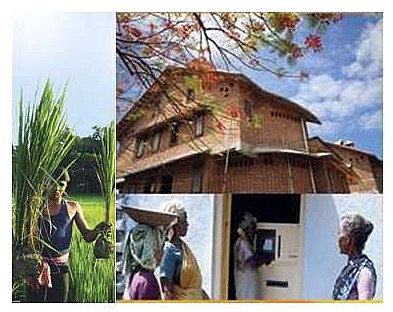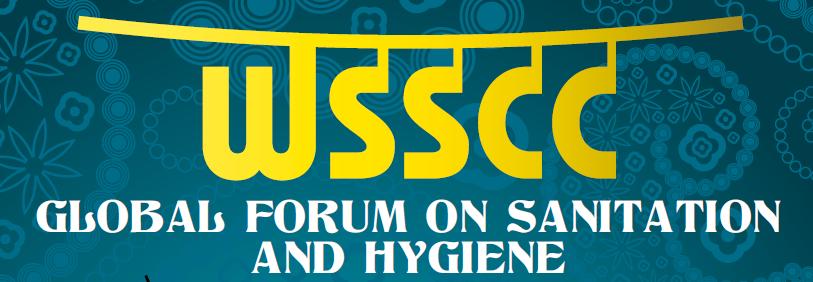/topics/conflicts
Conflicts
Interstate river water disputes (IRWD) act (1956) and its legal provisions
Posted on 09 Nov, 2011 10:01 PMThis paper elaborates the techno – legal aspects of Interstate river water disputes act – 1956 which was enacted to resolve the water disputes among the basin states of an interstate river / river valley. This Act’s main purpose is to protect the interests of a downstream state when water resources available in an upstream state are put to additional use.
Interstate River Water Disputes Act – 1956 (IRWD Act) was first enacted on 28th August, 1956 by Indian parliament on the eve of reorganization of states on linguistic basis to resolve the water disputes that would arise in the use, control and distribution of an interstate river or river valley. This Act further has undergone amendments subsequently and its recent amendment took place in 2002. It also validates the previous agreements (if any) among the basin states to harness water of an interstate river/ river valley.
Assam’s strategy and action plan on climate change - Recommendations - First draft - ASTEC (2011)
Posted on 07 Nov, 2011 11:20 AMThis report by the Assam Science Technology & Environment Council (ASTEC) contains the compiled recommendation of three consultative workshops organized in Assam University, Gauhati University and
Water poverty in urban India - A study of major cities - A seminar paper - Tata Institute of Social Sciences
Posted on 05 Nov, 2011 12:02 PMThis seminar paper submitted for the UGC Summer Programme at the Jamia Millia Islamia University describes the findings of a study that explored the quantity of water used in domestic households vis-à-vis the recommended quantity of water consumption in seven major Indian cities, n
Report of the committee on slum statistics/census - Ministry of Housing and Urban Poverty Alleviation
Posted on 29 Oct, 2011 04:12 PMThis report by the Ministry of Housing and Urban Poverty Alleviation, Government of India, is the outcome of the deliberations conducted by the committee on slum statistics/census constituted by the Ministry of Housing and Urban Poverty Alleviation in the context of the realisation that there continues
Piloting Knowledge Swaraj - A hand book on Indian science and technology - KICS
Posted on 24 Oct, 2011 04:23 PMThis hand book on Indian science and technology was produced at the end of a project entitled “Science, Ethics and Technological Responsibility in Developing and Emerging Countries” (SET DEV) by Knowledge in Civil Society (KICS). The project aimed at:
- Activating processes of building institutional capacities and skills on science,ethics and STR socialization
- Defining and understanding perspectives of socialization of science and technology that take into consideration local needs in a multilateral dialogue.

Live feed: WSSCC Global Forum on Sanitation & Hygiene - 9-14 October 2011, Mumbai
Posted on 13 Oct, 2011 10:22 AM
We all know the statistics: 2.6 billion people around the world are without access to a basic toilet. Diarrhoea – the vast majority of it due to poor sanitation and hygiene – is the second biggest killer of children worldwide.
Between us, we also have many of the answers. We have experiences of low-cost technologies that are acceptable and affordable for poor communities in rural areas. We have been involved in designing communications programmes that have contributed to sustained behaviour change.
We have seen governments and civil society working together to set up policies and programmes that ensure access to better sanitation in challenging settings, such as crowded informal settlements in fast-growing megacities. We have also seen businesses grow up around sanitation and hygiene, allowing individuals to make a dignified living and clients to buy the sorts of products and services they want and need.
Thirupporur and Vadakkuppattu: Eighteenth century locality accounts – A report by Centre for Policy Studies
Posted on 10 Oct, 2011 08:26 PMThis research monograph on Thirupporur and Vadakkuppatu: Eighteenth Century Locality Accounts, prepared jointly by the Centre for Policy Studies, Chennai and Tamil University, Thanjavur, presents a graphic picture of the society and polity of eighteenth century Tamil Nadu.
Women and water - A collection of papers - Economic and Political Weekly - Volume XLVI - Number 18 - April 30 (2011)
Posted on 07 Oct, 2011 07:31 PMIt does this in the context of the new decentralised governance structures that are based on the assumption that domestic water supply is the legitimate domain of women and thus power and authority needs to be granted to women to manage water resources.
However, there is a very little understanding of how this has benefited women and what are the challenges experienced during the process of implementation or the outcomes gained from these processes, in the context of the Indian society that continues to propogate patriarchal values and is based on structures that are inherently hierarchical and inequitable.
Some of the papers dwell on and explore the inherent biases in the literature and make an attempt to understand their implications for women in managing water resources, while some of the papers share case studies on the outcomes of the implementation of the decentralised water management policies at the village level.
Different designs, same management: A note from Water Initiatives Odisha on Rengali dam and flood management
Posted on 28 Sep, 2011 09:57 AMWater Initiatives Odisha, brings out a special note on this issue in response to the latest spell of the flood disaster in northern Odisha Rivers.
Goa, going, gone – A film by Carmen Miranda on Goa’s mining
Posted on 24 Sep, 2011 03:03 PMGoa, going, gone – A film by Carmen Miranda on Goa’s mining
As you may have assumed from its title, “Goa, going gone” is about Goa - - or more specifically, it’s about the environmental impact that is likely to result from the rampant mining that is underway in the state. Goa is being dug out of existence and gigantic craters expand across a 95 km long mining belt.





